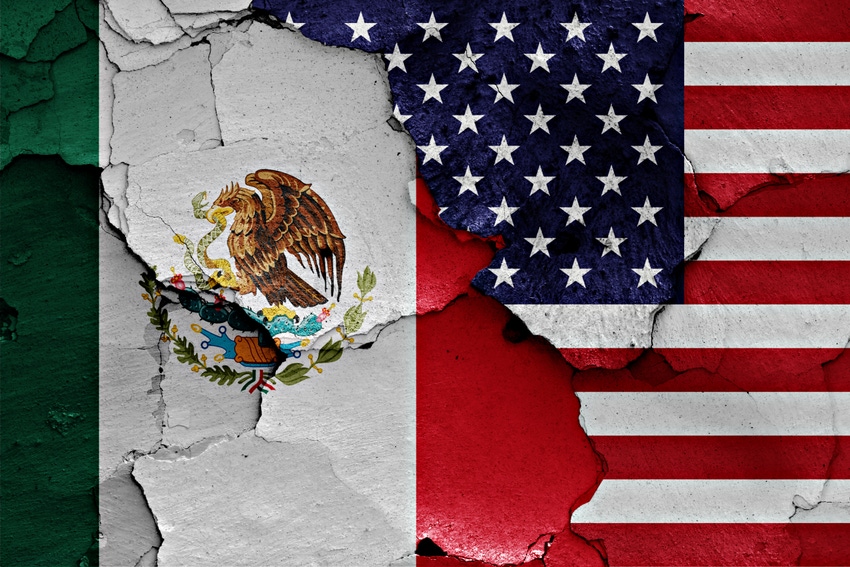Increased purchases of ag part of Mexico 5% tariff deal
Administration’s push to implement 5% tariff on June 10 causing great concern to those in agriculture.

U.S. and Mexican government officials met several times during June 4-6 to discuss and possibly head off looming tariffs on Mexico imports that will go into effect on Monday, June 10. President Trump announced plans May 30 to impose 5% tariffs on all Mexican imports as of June 10, with tariffs ratcheting up to 25% each month if Mexico does not stop the flow of Central Americans into the United States.
In a tweet Friday afternoon, President Trump said if an agreement can be forged with Mexico it would include increased farm and agricultural product purchases as part of any deal.
If we are able to make the deal with Mexico, & there is a good chance that we will, they will begin purchasing Farm & Agricultural products at very high levels, starting immediately. If we are unable to make the deal, Mexico will begin paying Tariffs at the 5% level on Monday!
— Donald J. Trump (@realDonaldTrump) June 7, 2019
As of Friday afternoon, no agreement had been reached, while President Trump has drafted plans for a new national emergency declaration in order to impose tariffs on Mexico. Congressional Republicans reportedly are considering whether to vote to block the administration's planned new tariffs.
Additionally, the National Pork Producers Council (NPPC) Friday afternoon signed onto a statement issued by organizations representing a cross-section of U.S. economic sectors addressing the importance of tariff-free trade in North America as a cornerstone of U.S. economic growth. "Tariffs on Mexican imports would harm U.S. consumers, workers, farmers and businesses of all sizes across all sectors, making us less competitive and undermining efforts to negotiate strong trade deals in the future. We oppose unilateral tariffs and any subsequent retaliation," according to the joint statement, initiated by the U.S. Chamber of Commerce, said.
The Chamber reported that $17 billion is the potential tax increasethat would be passed along to American businesses and consumers by a 5% tariff on important goods from Mexico, which last year totaled $346.5 billion. Should the tariff reach the President’s threatened cap of 25%, that tax would eclipse $86 billion. “But given how even a 5% tariff can disrupt trade flows, the economic impact could be much larger,†the Chamber of Commerce stated.
In an interview with CNBC this week, NPPC president David Herring said, "Producers are extremely concerned about another potential trade retaliation from Mexico. We just got away from the 20% punitive tariffs just a few weeks ago." Over the last year, trade disputes with Mexico and China have cost hard-working U.S. pork producers and their families approximately $2.5 billion. NPPC urges we move past these tariffs by ratifying the United States-Mexico-Canada agreement, complete a trade agreement with Japan and resolve the trade dispute with China.
While speaking in Pennsylvania Thursday, Vice President Mike Pence said in discussions with Mexico it was revealed that last month alone, over 144,000 people entered the United States illegally.
“The President directed us — myself, the Secretary of State, and our team — to meet with the Mexican delegation, at their request, and hear them out. Progress was made… And we made it clear yesterday [Wednesday] at the White House that Mexico must do significantly more to end this crisis of illegal immigration at our border. We called on them to take even more steps — more decisive action,†Pence said.
About the Author(s)
You May Also Like




